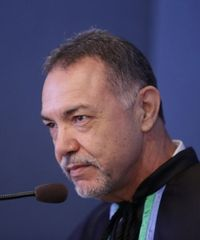
Paulo Cesar de Morais
Professor, Catholic University of Brasilia, Brazil.
Research Interests: Preparation, Characterization and Applications of Nanosized Materials (Magnetic Fluid, Magnetoliposome, Magnetic Nanoemulsion, Magnetic Nanocapsule, Magnetic Nanofilm, Magnetic Nanocomposite, Nanosized Semiconductors, Polymeric dots, Carbon Dots, and Grap.
More Information >>
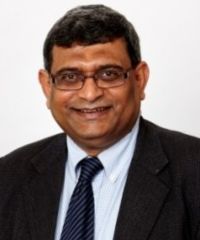
Raman Singh
Professor, Monash University, Australia.
Research Interests: The Relationship of Nano-/Microstructure and Environment-assisted Degradation and Fracture of Metallic and Composite Materials, and Nanotechnology for Advanced Mitigation of such Degradations.
More Information >>
Prof Singh’s professional distinctions and recognitions include: Guest Professor of ETH Zurich, Editor of a book on Cracking of Welds (CRC Press), Lead Editor of a book on Non-destructive Evaluation of Corrosion (Wiley), Editor-in-Chief of an Elsevier and two MDPI journals, leader/chairperson of a few international conferences and numerous plenary/keynote lectures at international conferences, over 268 peer-reviewed international journal publications and 15 book chapter, and several competitive research grants (that includes 4 Discovery, 7 Linkage and one ITRH grants of Australian Research Council).
Prof Singh has supervised 58 PhD students. His vibrant research group at Monash University comprises of PhD students from different disciplines (Mechanical, Chemical, Materials and Mining Engineering, and Science) as well as from different cultural backgrounds (Australian, Middle-eastern, Chinese, Malaysian, Indian, African, North American and Israeli).![]()
Professor Raman Singh’s primary research interests are in the relationship of Nano-/microstructure and Environment-assisted degradation and fracture of metallic and composite materials, and Nanotechnology for Advanced Mitigation of such Degradations. He has also worked extensively on use of advanced materials (e.g., graphene) for corrosion mitigation, stress corrosion cracking, and corrosion and corrosion-mitigation of magnesium alloys (including for the use of magnesium alloys for aerospace, defence and bioimplant applications).
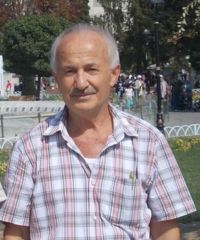
Osman Adiguzel
Professor, Firat University, Turkey.
Research Interests: Shape Memory Effect and Displacive Phase Transformations in Shape Memory Alloys and Other Alloys, Molecular Dynamics Simulations, Alloy Modeling, Electron Microscopy, Electron Diffraction, x-Ray Diffraction and Crystallography.
More Information >>
He published over 80 papers in international and national journals; He joined over 120 conferences and symposia in international and national level as Plenary Speaker, Keynote Speaker, Invited speaker, speaker or Poster presenter. He served the program chair or conference chair/co-chair in some of these activities. In particular, he joined in last six years (2014 - 2019) over 60 conferences as Speaker, Keynote Speaker and Conference Co-Chair organized by different companies in different countries.
Additionally, he retired at the end of November 2019, and contributed with Keynote/Plenary Speeches over 180 Virtual/Webinar Conferences, in the coronavirus outbreak in four year of his retirement, 2020 and 2023.
Dr. Adiguzel served his directorate of Graduate School of Natural and Applied Sciences, Firat University in 1999-2004. He supervised 5 PhD- theses and 3 M. Sc theses. He is also technical committee member of many conferences. He received a certificate which is being awarded to him and his experimental group in recognition of significant contribution of 2 patterns to the Powder Diffraction File – Release 2000. The ICDD (International Centre for Diffraction Data) also appreciates cooperation of his group and interest in Powder Diffraction File.
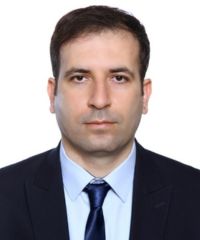
Babak Safaei
Research Interests: Advanced Manufacturing, Computational Mechanics, Micro and Nano Mechanics, Design of Lightweight Structures, Composite Materials, Mechanical Vibration and Testing.
More Information >>
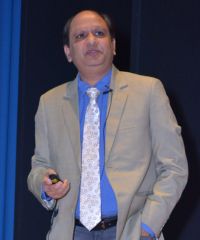
Tokeer Ahmad
Professor, Jamia Millia Islamia, India.
Research Interests: Nanomaterials, Nanocatalysis, Organocatalysis, Photocatalysis, Electrocatalysis, Photoelectrocatalysis, Water Splitting, H2 Energy and Gas Sensing.
More Information >>
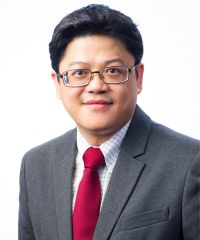
Sam Hsien-Yi HSU
Associate Professor, City University of Hong Kong, China.
Research Interests: Dynamic Interfacial Interaction, Waste-to-Energy Technology, Organic Matter Degradation, Material Design and Synthesis, Electrochemiluminescence, Solar Power Generation, Solar Fuel Production.
More Information >>
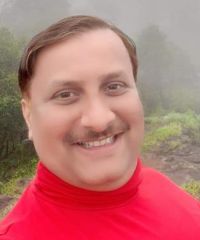
Vinayak Adimule
Assistant Professor, Angadi Insitute of Technolgy and Management, India.
Research Interests: Functional Nanomaterials, Material Electronics, Nanocomposites and their Electrical, Electronic, Optical Properties. Synthesis, Characterization and Medicinal Properties of Rare Earth Metal Complexes, Synthesis of Organic Ligand Doping to Rare Earth Nanocomposite and Studying their Photovoltaic Characteristics etc.
More Information >>
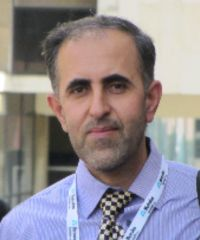
Azeez A. Barzinjy
Research Interests: Green Synthesis of Nanoparticles, Metal Electroplating from Novel Ionic Liquids and Investigating their Properties, Solar Selective Coating, Surface Plasmon Resonance and Nanotechnology.